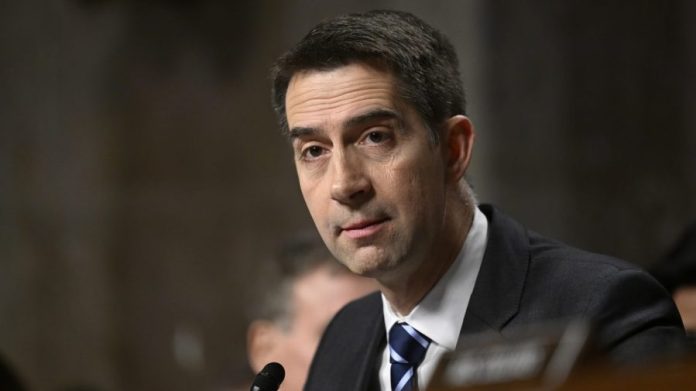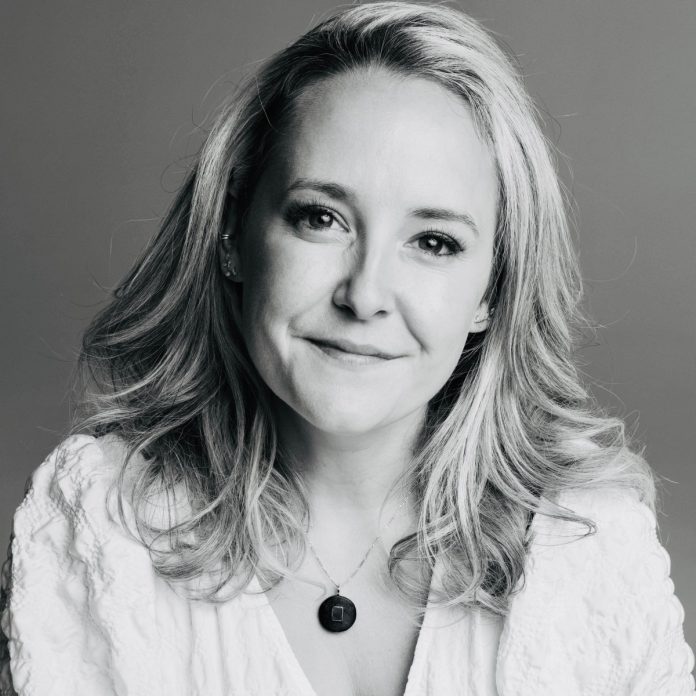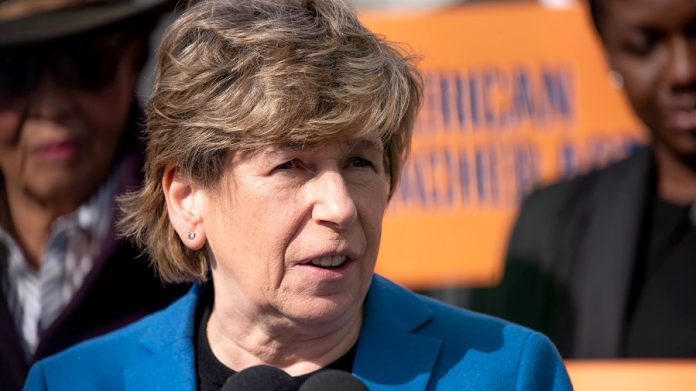It’s been 10 years since Alexa von Tobel sold her financial planning startup LearnVest to Northwestern Mutual for a reported $375 million.
Since then, von Tobel became Northwestern Mutual’s first chief digital officer, then chief innovation officer, before launching an early-stage venture firm of her own, Inspired Capital, with former U.S. Secretary of Commerce Penny Pritzker. She’s also a New York Times bestelling author, and she’s about to launch a new interview podcast, “Inspired with Alexa von Tobel.”
In a conversation with TechCrunch, von Tobel recalled the hectic period around the acquisition, which closed literally days before the birth of her first child, and when she knew it was time to start her own firm.
Von Tobel explained that she created Inspired to be the investor she’d dreamed of — one with a “cultish commitment to entrepreneurship” — when she was a founder herself. And while Inspired is a generalist firm, she said she feels both “urgent and optimistic” about fintech, the sector where she launched her career. (One of her pre-Inspired fintech investments, Chime, just went public.)
“We think of this wave as fintech 3.0,” von Tobel said. “The next wave of innovation won’t come from superficial tweaks but from fundamental deep product reinvention — tools that meet the needs of a changing economy and a more diverse, digitally native population.”
The following interview has been edited for length and clarity.
Congratulations on the 10-year anniversary of the acquisition. Looking back, what do you feel proudest of?
First, Northwestern Mutual is an incredible company, and our software became an incredibly important part of the customer experience. And I am so proud that so many of the LearnVest team stayed at Northwestern Mutual for so long, and it really was just a merger of actual values. It’s just amazing how simple some things are, it comes down to the values of two companies and the missions of two companies.
I sold on a Wednesday and went into labor with my first child that weekend. All jokes aside, I always say it took me about a year to mentally just recover from being, like, all systems were go, my brain was being pushed to manage so many things. Literally, I was having my first child. It was like the world threw a bus at me and I caught it.
So when you were closing the deal, was there a ticking clock in your mind, that you had to finish everything before this whole other thing happens?
Of course. If you think about it, we literally signed on, I think, 11am on March 25 and then we did a press tour with the CEO, and then the next day, we did a stand up with the entire team, and then I went to sleep and literally woke up in labor.
Having your first child is priceless. There’s nothing in the world that is more valuable to me than having my children, nothing. And so I kept being like, “We have to get this done, because I’m not leaving the hospital to come back and close a deal. I actually need to focus on this human being that I’m bringing into the world.” I always joke that the lawyers took me very seriously.
When people on the outside talk about an acquisition, obviously, the first thing they talk about is usually the financials, and then one of the signs of success is the product. LearnVest as a product doesn’t exist anymore, but it sounds like it was less about having LearnVest as a standalone product and more about transforming Northwestern Mutual.
It was so much bigger than a product. [Northwestern Mutual’s] John Schlifske, he’s no longer CEO, but he is one of the people I look up to most in the world, just a formidable human being. And he kept being like, “We’re gonna merge the companies.” And I would laugh — one is a $40-billion-a-year company, and [the other is] little tiny LearnVest. But he really meant it. He was like, “We’re gonna use this as a catalyst.” It was a catalyst for an entire digital transformation.
I became the company’s first ever chief digital officer, and then chief innovation officer, and it was really about taking everything and merging it into the broader parent company. My CTO of LearnVest became the CTO of the parent company.
You stayed for four years?
Yeah, [my last day] was basically end of January 2019, and that day we launched Inspired.
How did you know it was time to leave, and where did the idea for Inspired come from?
I’m always at my best when I’m building something that I wish existed for me. And I’ve said many times that the idea for Inspired actually happened when I dropped out of business school, and I was a really all-in entrepreneur in every way — I dropped out basically December 18 of 2008, at the bottom of the worst recession in 81 years, not necessarily the the the most inviting time to start a company.
And I really was looking for a capital partner that didn’t exist. I had this vision of what it should look and feel like, this sort of rigor and camaraderie and in-the-trenches-ness of what an early stage capital partner could be, and I didn’t see it in the market. That was New York in 2008, 2009, and I had this long-term plan of one day, I want to come back and build that.
Fast forward to 2018, 2019 I’d started really actively dreaming about what that could look like. And one day I was like, it has to happen, it’s now.
We’re now almost seven years in. We’re a dedicated early stage venture fund, generalist, headquartered in New York, but investing everywhere. And I feel like I’ve been here for one minute. It literally is the best job I’ve ever had.
You mentioned having this idea of a capital partner that you wished you’d had. How do you put that into practice?
What was I looking for in that capital?
What were you looking for, and how did you get everyone at the on-board with that vision?
So, when I talk to entrepreneurs, I always say Inspired is different for four key reasons. The first reason is that we are extremely long duration capital. It means when we back a founder, we truly put blinders on for 20 years. When you’re building a company, there’s choices you have to make as a CEO, which is, “Do I do the thing for next month so that things look good, or do the harder thing that won’t look good next month, maybe it pays off in three years, or not?” And what we always say is, “Do the harder thing, do the thing that’s creating far more long-term value and worry less about synthetic results.”
The second thing is, our team’s pretty unique in that we’ve built and scaled more than 10 businesses that have touched hundreds of millions of users around the world. That mentality is so different when you’re sitting in the seat working with an entrepreneur, because we haven’t necessarily lived every experience, but we’ve lived a lot, and we appreciate the contours. It’s almost like seeing 3D versus 2D.
The third thing is that our team operates like one unit. So when we back a company, you actually get the entire team. At many firms, you get one partner, that’s the person they know, they know you, and if, God forbid, that partner leaves, it’s like you’ve evaporated your social equity that you built up with that partner. We operate like a swarm, where you get all of us and we actively do weekly stand ups on the entire portfolio, so that everybody’s up to speed.
And then the final thing, because of [Inspired co-founder Penny Pritzker], she’s on the board of Microsoft, was U.S. Secretary of Commerce. So we like to say that, there are many, many, many, many ways that we can help companies get access to things that are really hard to get as just a sole founder in your 20s or 30s, where we can actually be a tremendous business accelerant to our companies in a pretty unique way, with access to tech and government and many other vectors.
So in short, that was the firm I wanted.
I wanted a deeply cultish commitment to entrepreneurship. We always talk about this Inspired future — one of the things I love so much about entrepreneurship is, no great entrepreneur shows up and is like, “Let’s make the world worse,” right? They show up and they’re like, “Here’s a big problem that’s facing a billion people. Let’s go fix it.”
I think some of the biggest founders in the world, their companies poured out of their DNA. I started LearnVest because my father had passed away, and my mom overnight had to manage our finances. And I [thought], I never want a family to feel financially destabilized, and I wanted to go build the solution.
When we look back at the broader ecosystem over the last 10 years, one of the big transitions is leaving behind that period of zero interest rate policy (ZIRP) for VC and startups. Have you seen a change in the venture ecosystem in the last few years, and has that affected the way you approach investing at Inspired?
So just a helpful framework — Inspired is a full generalist fund. We will touch everything from deep tech to health tech to consumer, looking for the biggest, most important ideas of the next 15 years. Every day, when I come to work, I literally mentally walk into this office in 2035. And that’s how we’re thinking about where the world is going and the problems to be solved.
And I think when ZIRP existed, many things that I would say weren’t venture bets, would get backed. And I almost think it would be confusing, because you’d be like: What categories are not venture categories? Lots of categories are not venture categories by nature — if you think about power law, everything that we back ideally has a real chance to be worth $10 billion. There’s not a lot of those.
I built LearnVest at the bottom of the worst recession in 81 years, and actually LearnVest was not an easy business. It was regulated, there were so many other things that were really hard about what we were doing. I really like hard businesses, because they have defensibility. They have reasons to exist. They have less copycats.
I think a lot of things got funded over the last period of, like, 2014 to 2021, that should’ve been getting a different source of capital.
How are you feeling about the state of fintech in 2025? Where are there still opportunities for startups?
I’m feeling both urgent and optimistic about the state of fintech today. Financial services remain foundational to a functioning society, but they haven’t kept pace with the rapid technological, demographic, and social shifts we’re experiencing. The growing federal debt, rising income inequality, and increasing poverty — especially among older Americans — underscore the need for more adaptive and inclusive financial tools. Not to mention the rapid job loss due to AI.
This moment presents a major opportunity for startups to reimagine financial products from the ground up. We think of this wave as fintech 3.0. The next wave of innovation won’t come from superficial tweaks but from fundamental deep product reinvention — tools that meet the needs of a changing economy and a more diverse, digitally native population. We’re excited by founders who see this challenge clearly and are building bold solutions to address it.
You launched LearnVest on-stage at the TechCrunch 50 conference in 2009. If you were a judge at our Startup Battlefield in 2025, what would you be looking for in the winning team?
I would be looking for a founder who, based on who they are and their lived experience, has a powerful, unique insight to a problem that touches hundreds of millions of people, if not more. Two, I would be looking for something that is non-obvious. You know, I think some of the biggest and best ideas are non-consensus, people don’t think they’re interesting. Third, I would look for an entrepreneur who’s living and breathing a decade out. They see this very powerful future.
And the final thing I would look for is the founder who has — there’s a spikiness, there’s a grit and resilience, but also a command, that you can sit with them and it’s palpable, that they will figure out a way to succeed. Those are the key ingredients that you look for.











